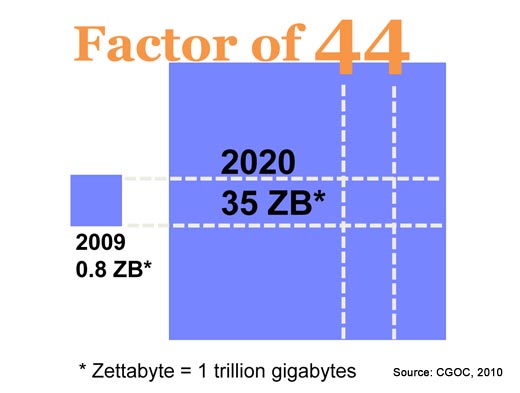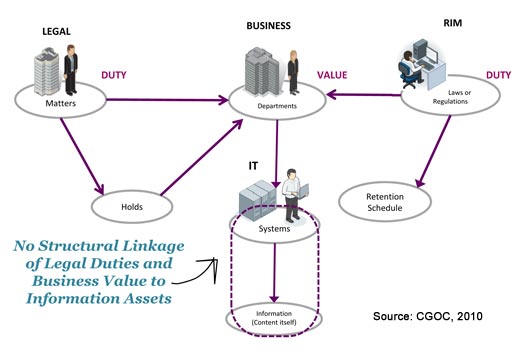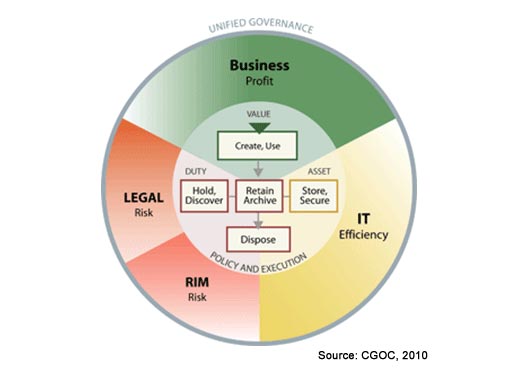It's no surprise that the amount of digital data is expanding exponentially, and will continue to do so. Experts have talked about it, and we have reported it, for years now. Unfortunately, according to a recent study conducted by the Compliance, Governance and Oversight Council, companies aren't getting better at managing the information they have. The report revealed that though 98 percent of Fortune 500 executives who participated in the survey acknowledge that “rigorous discovery” and defensible disposal of information is the most powerful outcome of information governance efforts, very few are able to effectively dispose of data.
Chances are then, adding more data to the equation will only complicate matters unless companies take a different approach to information management. The Electronic Discovery Reference Model Information Management project and its offshoot, the Information Management Reference Model, may be the way to go.
Click through for the results of a recent Compliance Governance and Oversight Council survey on effective information governance and how current practice must change to address the continuing data boom.
According to CGOC, information governance is managing information according to its legal obligations and its business value, which enables defensible disposal of data and lowers the cost of legal compliance.
On average the cost to collect, cull and review information for each lawsuit a company faces is about $3 million.
Only 30 percent of reviewed data actually neededed to be retained.
98 percent of companies cited defensible disposal as their information governance objective.
Only 22 percent of companies are actually able to effectively dispose of information today.
Information growth is expected to increase by a factor of 44 over the next decade.
Where's the disconnect? Current practice. Seventy percent of companies use “liasons and people glue” to link discovery and regulatory obligations to information. There is no structural link between legal duties, business value, and information.
The Information Management Reference Model may be the answer. Forty-three percent of those surveyed said IMRM can be a management catalyst, and an additional 29 percent said it helps them organize their efforts.











